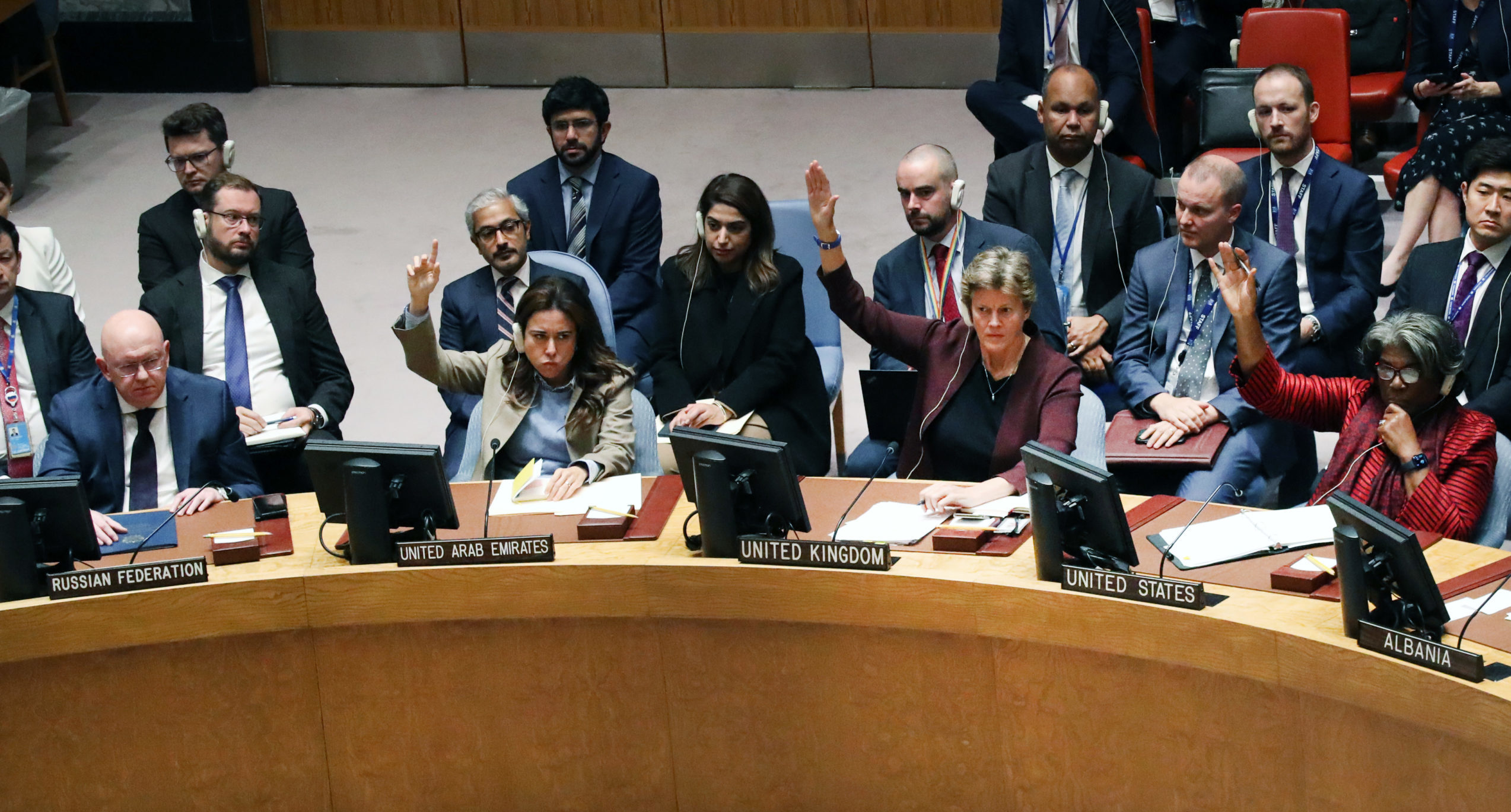Ever since the signing of the United Nations Charter in San Francisco in 1945, its legal framework has been seen as offering a bulwark against expansionism and international aggression. The insistence in the Charter on sovereign equality, territorial integrity and non-interference in the internal affairs of member-states allowed ex-colonial states to enshrine their independence from their former masters. The UN also facilitated mobilisation to defend the independence of its member states. It was through the international body, for example, that the US organised an enormous coalition to reverse the Iraqi annexation of Kuwait in the 1990-1991 Gulf War.
Although UN Secretary-General Antonio Guterres has openly criticised the Russian annexation of the oblasts of eastern Ukraine, Russia being one of the five permanent members (P5), of the Security Council means that it was able to use its veto to block a UN resolution condemning the annexation. Will the UN be able to offer any further legal and political recourse for Ukraine in the defence of its sovereignty from Russia?
As exemplified by Russian diplomatic behaviour in New York, the problem with UN action is usually cast as the problem of the veto — the fact that the Charter grants the P5, the victors of the Second World War, the legal right to immobilise any collective action that they perceive as threatening their self-interests. Various proposals have been repeatedly floated to discourage and restrain the use of the veto, as well as various schemes to expand and reform the Council.
However, the problems with the UN run deeper. The rationale for the veto is that it serves as a binding mechanism, so that there is never a scenario in which a permanent member feels compelled to leave the UN in order to defend their vital interest, thereby breaking up the organisation. In other words, the veto is the guarantee of the integrity of the UN system itself. This reflects the intended function of the UN as a ‘trusteeship of the powerful’ in the words of Franklin Roosevelt, one of the founders of the UN.
In keeping with this vision, the Charter correspondingly concentrates an enormous amount of legal and political power in the hands of the P5. All legal protections that the Charter affords member-states, including the right to non-interference and even the right of self-defence, can be legally overridden by the Council. It can do this if it is deemed to be in the interest of defending international peace and security, which they are also at liberty themselves to define. That the UN came to be associated with the anti-imperial insurgency of the Third World against colonial states was more a reflection of the geopolitics of the Cold War than it was the intent of the framers of the UN Charter.
Indeed, the closest that we came to seeing the UN function as was originally intended was across the 1990s, when the P5 were happy to sign off on each other’s military interventions in their respective spheres of influence. For example, in 1994 the UN authorised Russian intervention in Georgia, US intervention in Haiti and French intervention in Rwanda. This relatively harmonious system of collective legitimation for great power predation could not last indefinitely, as the growing penchant for military intervention inevitably led to the great powers beginning to encroach on each other’s respective spheres of influence.
It is the breakdown of this system over the last 20 years, beginning with the NATO war over Kosovo in 1999, which was conducted without UN authorisation due to Russian and Chinese opposition, that led to our current impasse. Where does this leave us with respect to Ukraine?
Put simply, the UN prioritises the interests of the P5 above all else. Russia’s annexation of the territory of a neighbouring state makes plain that the UN is redundant as a haven for weaker and smaller states. If sovereignty is to be defended as a principle, we can no longer rely on decrepit international institutions inherited from the mid-twentieth century. Perhaps the fight for Ukrainian sovereignty can also be the start of a new international era, more respectful of national independence than the UN has ever been.











Join the discussion
Join like minded readers that support our journalism by becoming a paid subscriber
To join the discussion in the comments, become a paid subscriber.
Join like minded readers that support our journalism, read unlimited articles and enjoy other subscriber-only benefits.
Subscribe